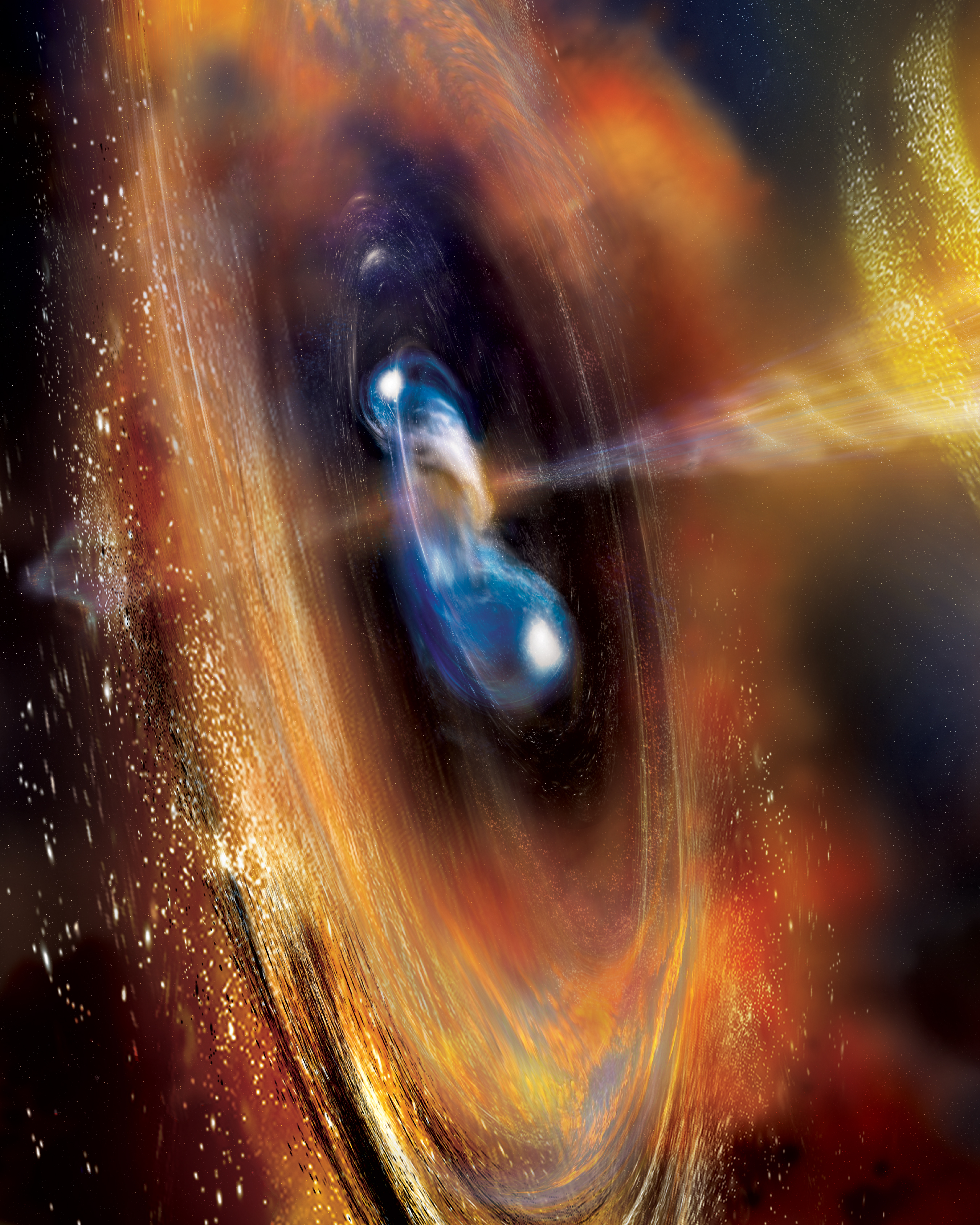Universe Stories
Filters

What is Dark Energy? Inside our accelerating, expanding Universe
Some 13.8 billion years ago, the universe began with a rapid expansion we call the big bang. After this initial expansion, which lasted a fraction of a second, gravity started to slow the universe down. But the cosmos wouldn’t stay…

Gamma-ray Bursts: Harvesting Knowledge From the Universe’s Most Powerful Explosions
The most powerful events in the known universe – gamma-ray bursts (GRBs) – are short-lived outbursts of the highest-energy light. They can erupt with a quintillion (a 10 followed by 18 zeros) times the luminosity of our Sun. Now thought…

How Gravity Warps Light
Gravity is obviously pretty important. It holds your feet down to Earth so you don’t fly away into space, and (equally important) it keeps your ice cream from floating right out of your cone! We’ve learned a lot about gravity…

Gamma-Ray Bursts: Black Hole Birth Announcements
Gamma-ray bursts are the brightest, most violent explosions in the universe, but they can be surprisingly tricky to detect. Our eyes can’t see them because they are tuned to just a limited portion of the types of light that exist,…

Dust in the Stellar Wind: A Cosmological Primer
The handsome Horsehead Nebula, rearing up against glowing red gas, is sculpted from dust. Like many of the most iconic images in astronomy, the nebula is made of thick clouds of the stuff, part of a vast molecular cloud complex…

What Happens When Something Gets ‘Too Close’ to a Black Hole?
Can a star be squeezed like a tube of toothpaste, flattened like a pancake, or stretched out like a piece of spaghetti? If there’s a black hole nearby, maybe. Scattered across the universe, black holes are objects with gravity so…

What is Betelgeuse? Inside the Strange, Volatile Star
A blazing red supergiant shining brilliantly in the night sky, Betelgeuse is a star that has captured attention for centuries.

Star Clusters: Inside the Universe’s Stellar Collections
Billions of trillions of stars speckle the universe. Star clusters are groups of stars that share an origin, forming at roughly the same time and location, and are tied together by gravity for up to millions or even billions of…

A Mesmerizing Model of Monster Black Holes
Just about every galaxy the size of our Milky Way (or bigger) has a supermassive black hole at its center. These objects are ginormous – hundreds of thousands to billions of times the mass of the Sun! Now, we know…

What’s Made in a Thunderstorm and Faster Than Lightning? Gamma Rays!
Fermi Gamma-ray Space Telescope has spotted gamma rays coming from thunderstorms.
